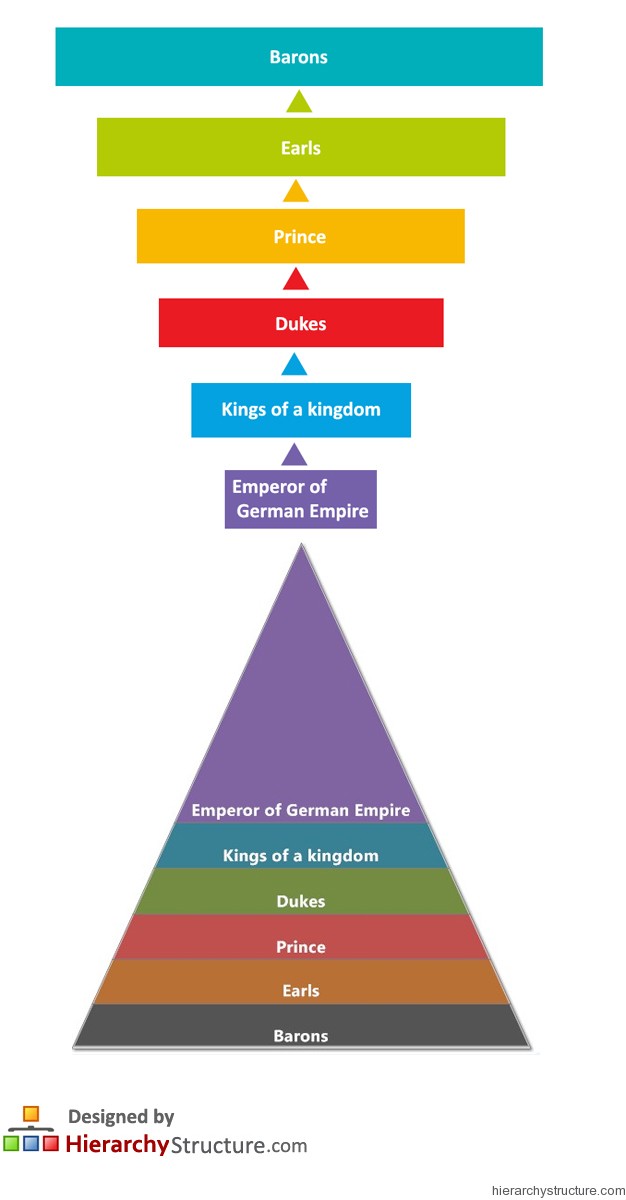German feudal hierarchy system was a social, economic and political system in which land owners gave their land or feuds to the people who were placed right after them in the social hierarchy in return of for faithfulness, armed forces services, and devotion and also rent in some cases.
The emperor was considered to own the entire land of the German during the era of feudalism. So to enjoy full control over the German territory, the empire was divided into several kingdoms. A separate king was appointed for each kingdom. That king was required to administer that entire kingdom for the emperor. In return he would rule that kingdom and enjoy special royal treatment. Kings further divided their kingdom area and handed over to other royal personnel in favor of loyalty and monetary favors.
This thing led to a systematic hierarchy formulation in the German empire that is referred to as German feudal hierarchy. This hierarchy system influenced effectively the entire German empire for many centuries and brought over many changed that became milestone in the world history. Every level in the hierarchy had its own set of privileges and duties that were to be performed. This further resulted in a pyramidal structure of the society. German feudal hierarchy is described as below-

Emperor of German Empire
The ruler of entire empire was the emperor in German feudal hierarchy. The German royal empire incorporated several kingdoms. These all kingdoms, their kings, their people and everything else came under the mighty royal emperor of the German empire. The emperor was the supreme head of the power. The decision of empire was final. His royal family also enjoyed this power but lower than the emperor himself.
Kings of a kingdom
As described earlier the German empire incorporated several kingdoms in it. The rank next to the emperor rank was of the kings of these kingdoms. These kings enjoyed rights like of the emperor but in their respective kingdoms. They were to answer only to the royal emperor. Their families also enjoyed the second most power and authority in the kingdom.
Dukes
Then were the dukes who ruled their respective duchies. They were like advisors to the kings and every kingdom had their own separate duke. The most famous dukes in the history of German feudalism include big names like the grand duchy of Hessen-Darmstadt, the duchy of Nassau etc.
Prince
These were the kids of the king of a particular kingdom. These were seen as successor of the ruling king. They were provided special training ever since their childhood.
Earls
Earls were the officials of the kingdom who rules respective earldoms. The earldom of Holland and the earldom of Mansfield had been quite famous in the history.
Barons
The lowest ruling authority in the German feudal hierarchy was of Barons. There were several Barons in a kingdom.
Except these, there were only common people who did not enjoy any special right or power in the empire and were totally dependent on these people.
